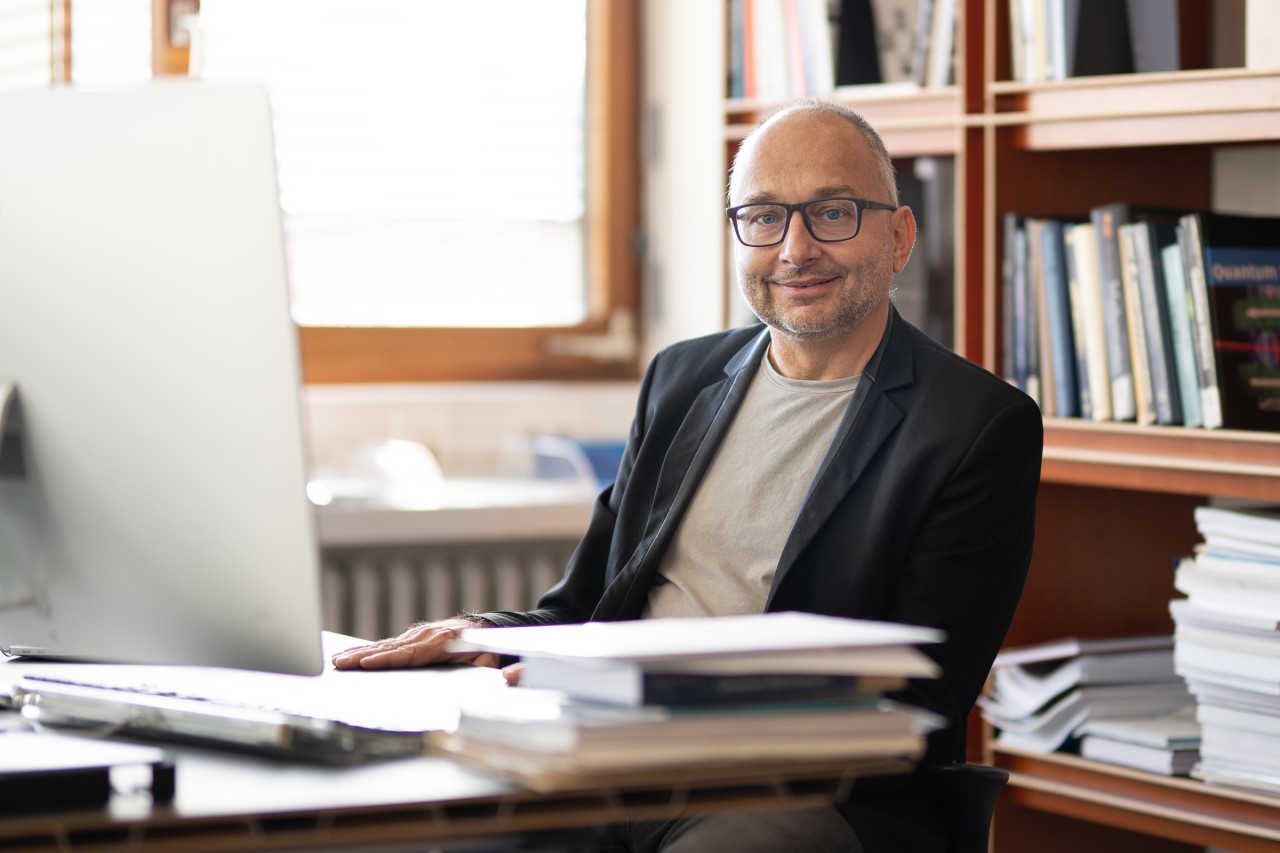Prof. Dr. Ulrich Schollwöck - Theoretical Physics at LMU Munich
1. Briefly describe your current position, research focus, and your role within MCQST.
I am a professor of theoretical physics at LMU; my general field of research is quantum many-body theory, and I am particularly interested in computational methods, mainly tensor network algorithms, but also more solid-state physics methods like dynamical mean-field theory. Applications are found in quantum materials as well as ultracold atoms in optical lattices. I was part of the writing team of the cluster proposal and am now, together with Monika Aidelsburger, coordinator of RU-G (explorative directions).
 © C. Hohmann / MCQST
© C. Hohmann / MCQST 2. How does a typical workday looks like for you?
A typical workday consists of a mixture of teaching, research, and administrative responsibilities, both for my group and for the faculty of physics. I love teaching. Admin duties, albeit necessary, take up way too much time, such that research often becomes an evening/weekend activity. However, home office allowed me to do much more research than in the past! My dream would be to find more time to learn about physics outside my own field just to satisfy my personal curiosity, without any immediate goal of working towards a paper or so.
My dream would be to find more time to learn about physics outside my own field just to satisfy my personal curiosity, without any immediate goal of working towards a paper or so.
3. What was the biggest challenge you overcame/faced in your professional life?
I think my hardest time was during my PhD. I had a great supervisor, helping me at decisive points, but was in an institution, which took on extremely few PhD students, and had mainly old and often famous members. So I didn’t really have many people to talk to about the „small“ daily problems you do not want to pester your supervisor with, and was struggling very much on my own. I am still grateful to one postdoc at that time, Norbert Elstner, let him be mentioned by name, who came halfway through my PhD, never worked with me directly but was simply there to discuss and chat. That made such a difference.
4. Tell us a little bit about your research; especially about coordinating the MCQST research unit G.
There are quite a lot of different projects going on in my group, and honestly, I can only immerse myself in a few of them really. As I have been working on model systems for many years, I am currently particularly excited by those projects which relate to real-world materials, like enhancing materials calculations (based on density functional theory and dynamical mean-field theory) by combining them with tensor networks or exploring how the latter can best be applied in quantum chemistry, for instance for describing reaction dynamics. Coordinating RU G is actually very easy - because it is „explorative directions“, the idea is that people pursue pet projects which they believe will turn into major avenues of research in the future. This means there is no structure to be imposed or so, rather on the contrary.